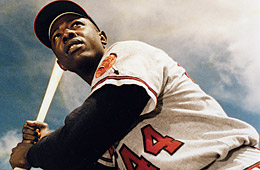Amanda Knox, the Appeals Process, and Moneyball
Today, my recent post on Amanda Knox was quoted by Ronald V. Miller in his Maryland Injury Lawyer Blog. He picks up on my point about the Knox case and other high-profile cases with an unexpected result. For clients and potential clients, such cases reinforce the often mistaken idea that, if you keep on slugging until there is no procedure left, no matter what the odds, you will eventually win. I thought about Mr. Miller’s post all day. And I decided to add a few point here about the idea of “fighting” through to the bitter end and what it means for the appellate process. There’s nothing wrong, in criminal cases, with fighting it through to the bitter end. Unlike in the civil arena where the central issue is money, in criminal law the issue is liberty. For a person with a lengthy prison sentence, the slimmest of odds may be worth the effort. When the issue is money, the time to stop is the point where the resources it might take to win begin to are outweighed by the odds of losing. So, let’s assume that any criminal case is worth taking the appellate and habeas process as far as you could possibly go, there is still an important question to ask. When does the client make the decision that he is in it for the long haul? For too many, that decision comes at the moment the jury files into the courtroom and delivers a guilty verdict. It’s a good decision that comes too late.
You don’t begin the appeal when the verdict comes, you begin the appeal when you open the case at the trial level. Part of client counseling involves planning for appeal. Unfortunately, nobody wants to talk about a guilty verdict at that stage. It’s one thing to purchase life insurance. But nobody wants to purchase life insurance from his doctor. But if you’re the trial lawyer, your job is to win the trial and make a record for appeal.
 The movie Moneyball is applicable here. If you’ve not read the book or seen the movie, an important issue is how much traditional baseball stats really tell you about a player. For instance, RBI (runs batted in) is not the stat that you might think it is, because a player who doesn’t often bat with runners on base doesn’t get the same number of opportunities to hit RBIs as a batter who has other hitters in the line up. To drive a run in without base runners requires the batter to hit a home run.
The movie Moneyball is applicable here. If you’ve not read the book or seen the movie, an important issue is how much traditional baseball stats really tell you about a player. For instance, RBI (runs batted in) is not the stat that you might think it is, because a player who doesn’t often bat with runners on base doesn’t get the same number of opportunities to hit RBIs as a batter who has other hitters in the line up. To drive a run in without base runners requires the batter to hit a home run.
Well, an appellate lawyer is essentially a batter who comes to the plate with two outs already recorded. Even the biggest power hitters will hit home runs infrequently. Take Hank Aaron, for instance. Aaron is remembered for hitting 755 home runs in his career. His total is impressive because he earned it at a time when players weren’t using steroids. But it’s important to consider his home run total in the context of his total career at bats. He had 12,364 career at bats. So the odds of hitting a home run, even for Hammerin’ Hank, were pretty low on average.
If the trial lawyer made a good record for appeal, through objections, motions, and rulings, then the appellate lawyer comes to bat with the bases loaded. At which point, the goal is simply to put the ball in play. It is helpful to look at appeals as analogous to RBIs. An appellate lawyer can hit home runs, but generally it’s much easier to appeal with a good record.
Now comes the part where the analogy breaks down. In baseball, the appellate lawyer can bat in more than one place in the lineup. In the past year or so, I’ve been fortunate enough to be brought into cases to handle motions and objections at the trial level. It’s great to be an appellate lawyer on a trial team. I have a particular role. I’m focusing on the record. The trial lawyer gets to smile for the jury and do all the other stuff trial lawyers do. And the appellate lawyer gets to put himself on base and hit himself in.
Unfortunately, I’m very often called in to pinch hit with two outs where I have to hit a home run to win. Hopefully more trial lawyers will start putting an appellate person on the trial team or at least start learning to see the game through an appellate lens. Hopefully more clients and trial lawyers will take a lesson from Moneyball and not from the Amanda Knox case, where the appeal was a “do-over” and not a detached examination of the errors at trial.

Leave a Reply
Want to join the discussion?Feel free to contribute!